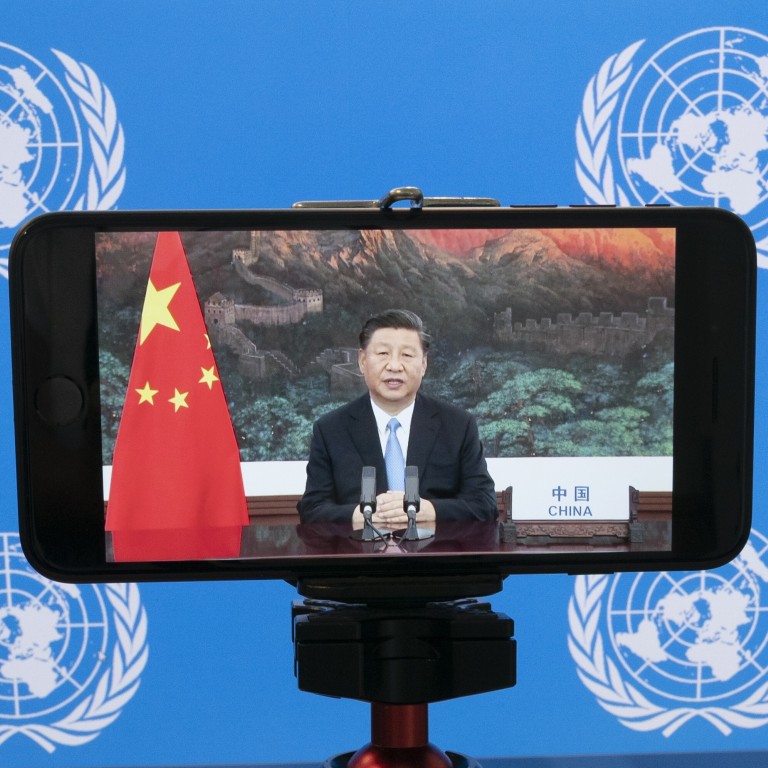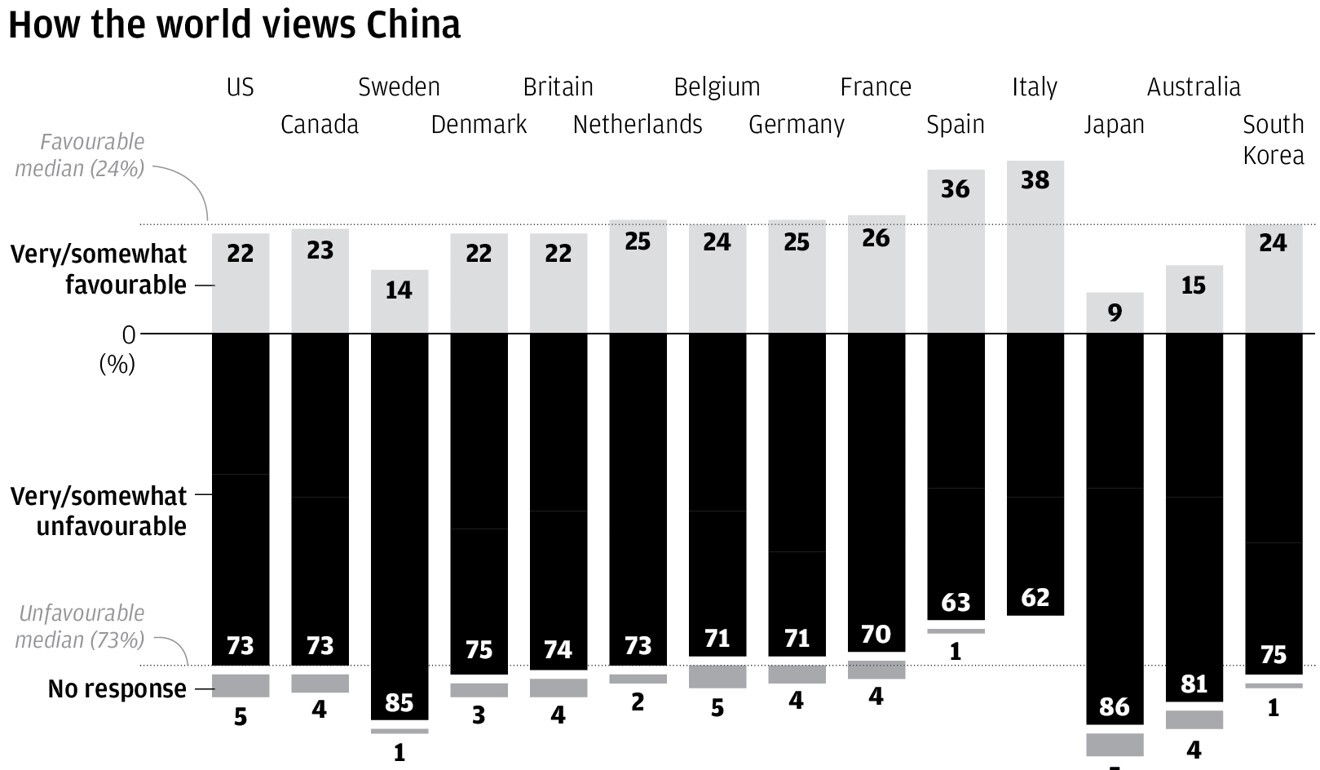
Negative views of China and Xi Jinping at record levels: international survey
- Disapproval reached historic highs in most countries polled by Pew Research Centre, with coronavirus handling among the factors
- Perceptions took the biggest hit in Australia, by 24 percentage points from last year, and worsened 19 points in Britain and 13 points in the United States
The findings come at a time when China has adopted a more aggressive diplomatic approach towards the international community and is locked in disputes with other countries on multiple fronts ranging from trade to military.
In Britain, 74 per cent of respondents now viewed the country in a negative light – up 19 points. And in the United States, negative views of China were up 13 points from last year to stand at 73 per cent, which is nearly 20 percentage points higher than when US President Donald Trump took office in January 2017.

05:02
Coronavirus backlash further fraying China’s ties to global economy
In nine of the surveyed countries – Spain, Germany, Canada, the Netherlands, the US, Britain, South Korea, Sweden and Australia – negative views reached their highest level in the 12 or more years that the survey has been conducted there, according to the Pew Research Centre.
The third-biggest year-on-year increases, following Australia and Britain, came in Sweden, the Netherlands and Germany, all with 15 percentage points. The share of Swedish respondents expressing disapproval of China, which reached 85 per cent, has risen 33 points in two years, while the proportion holding negative views in the Netherlands has grown by 28 points in the same period to stand at 73 per cent.
In Belgium and Denmark, surveyed for the first time, 71 and 75 per cent respectively gave negative evaluations of China.
Ratings given in Italy were the most stable in the survey. Although 62 per cent of respondents indicated disapproval with China, up 5 percentage points from last year, the figure almost matched the 61 per cent who did so in 2007.

Japan had the smallest proportion of respondents who said they liked China, with 86 per cent holding unfavourable views and only 9 per cent holding favourable views of the country.
The virus was first reported in December in the central Chinese city of Wuhan and has since spread around the world, claiming more than 1 million lives.
Pandemic shows global cost of Chinese censorship
A median of 78 per cent said they had little or no confidence in him to do the right thing regarding world affairs, including at least 70 per cent in every country surveyed.
That lack of confidence in Xi was at the highest level recorded by the survey in every country for which data was available except Japan and Spain.
However, respondents largely recognised China’s economic achievements, with people – especially from European countries – most commonly seeing China as the world’s top economy.
Outside the US, where 52 per cent of Americans said their country was the world’s leading economic power, only Japan (53 per cent) and South Korea (77 per cent) named the US above China as the world’s top economy.

